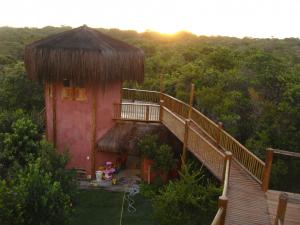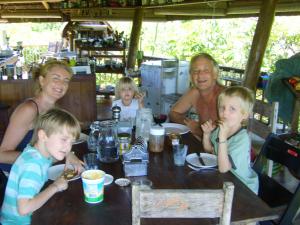By Mallory Knodel Publisher: APCNews MONTREAL,
Published onPage last updated on

Originally from South Africa, Jensen has been a part of APC since before the network was officially formed or before the internet existed, for that matter. And as of April 2013 he has taken on a role as APC staff in the Communications and Information Policy Programme (CIPP) as its Internet Access Specialist.
APC profiled highlights in Jensen’s communications policy work prior to the internet back in 2000:
“In 1986, Jensen set up a multi-user network for the Ontario Environmental Network using a cheap personal computer (a 286-AT IBM clone) and a PC-based version of Unix produced by Santa Cruz Operation (SCO).
“Calling itself ‘The Web’ (prior to Tim Berners-Lee’s adoption of the name for the World Wide Web), the system set up by Jensen provided much cheaper access for NGOs than any of the commercial systems available at the time and its user base expanded quickly…
“By the end of 1991, Jensen with assistance from colleagues in the APC network, had helped knit together seven nations into the APC network, including Senegal, Nigeria and Kenya. Each node of the network linked activists and NGOs in each country nationally and internationally. This was a feat in itself and even more so considering that most of the newly linked-up groups were in Africa where the internet would be long in coming and expensive when it arrived.”
The Web went on to be a founding member of APC and is still going strong after 25 years. Helping to found APC’s network was certainly a milestone in the internet’s development for social change. Jensen continued to be involved in other historic initiatives.

As the internet was getting going in Africa, he maintained a popular site documenting the growth of access on the continent. Recalled Jensen, “Steve Song set up the linux box at Sangonet that hosted the site, along with many of the pre-internet dial-up email connections from around the continent.”
Since then, Jensen has worked extensively in the general area of internet access in developing country settings, becoming one of the premier experts on the topic. Working with APC’s CIPP team on strategy and policy work around internet access issues broadly, he will lend his expertise in areas such as as Digital Migration, better use of radio spectrum, internet intermediary liability and broadband policies on several projects.
Last weekend, Jensen represented APC at the TV White Space (TVWS) and Dynamic Spectrum Forum, which APC helped to organise. “This forum should really help to make TVWS a real alternative on the continent,” he observed. “It was also a good opportunity to bring the under-use of radio spectrum under more public scrutiny.”
Also in 2013, an African IGF preparatory meeting will be held in Nairobi, an important lead-up to the global IGF in Bali this November, at which APC will be organising a panel on securing and defending internet access and rights.


